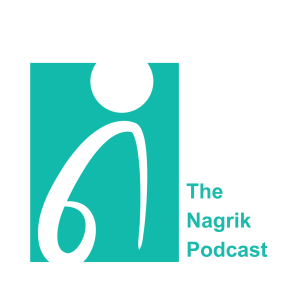
Thursday Mar 31, 2022
Waste Pickers Organising in Neoliberalism: Lakshmi Narayan, Poornima Chikarmane, Jane Barrett, Melanie Samson
The Kagad Kach Patra Kashtakari Panchayat (or KKPKP) is a membership-based trade union of waste pickers and itinerant waste buyers in Pune in Maharashtra. Formed in 1993, it wanted to assert waste pickers’ status as workers and their role in the city’s solid waste management. Today, it has over 9000 members, 80 percent of whom are women from socially backward and marginalised castes. Each member pays an annual fee to the organization and an equal amount towards their life insurance cover.
In 2005, KKPKP formed a wholly-owned workers’ cooperative called SWaCH in partnership with the Pune Municipal Corporation. 1500 waste pickers became providers of door-to-door waste collection services to the city’s households. In 2008, the PMC entered into a five-year agreement with SWaCH to decentralize door-to-door waste collection services. Cooperative members would collect segregated waste from over 2000 households. The non-recyclable garbage is further segregated for sale, while the wet or organic and non-recyclable waste is dropped off at the PMC’s ‘feeder points.’
A union of informal workers had formed a work co-operative.
Both historically and geographically, standard or formal work has been the exception. The vast majority of work in history has been performed without paid leave or work-related social security. Even when a significant portion of work in the rich nations came to be performed through formal arrangements, the large majority of work in the poorer nations remained informal.
In recent decades, the proportion of informal work has increased in the global north. This development has coincided with the emergence in the 1970s and 1980s, of a set of policies adopted by governments around the world to increase the role of the private sector in the economy and society, collectively known by the term neoliberalism. These policies have whittled away at the islands of formal work in the rich nations and impoverished informal workers in the poorer nations. One such policy is the privatisation of municipal services. Municipal contracts for waste collection services in the poorer nations have, instead of welcoming them into formal work, dispossessed waste pickers of their sources of livelihood.
In this episode of the Nagrik podcast, we learn about organising informal workers in neoliberalism through the example of Pune’s KKPKP. What are the different forms in which informal workers organise? What barriers do informal workers face in organising? How did the founders of KKPKP bridge the gap between them and the city’s waste pickers who lived very different lives? What kind of demands did KKPKP make? Did entering into a direct relationship with the PMC affect the union’s ability to advocate for its members? How do we understand the role of a work co-operative of waste pickers in resisting neoliberal trends? How can it safeguard against larger forces that can diminish the quality of waste picker lives? You can learn about all of this from the guests on this episode:
Lakshmi Narayan, co-founder, Kagad Kach Patra Kashtakari Panchayat
Poornima Chikarmane, co-founder, Kagad Kach Patra Kashtakari Panchayat
Melanie Samson, Associate Professor in the Department of Sociology at the University of Johannesburg
Jane Barrett, Director of the Organising and Representation Programme at WIEGO
References
ILO, “Integrating Informal Sector in Municipal Solid Waste Management - SWaCH Cooperative, Pune”
Poornima Chikarmane, “Integrating Waste Pickers into Municipal Solid Waste Management in Pune, India”, WIEGO Policy Brief (July 2012)
Poornima Chikarmane and Laxmi Narayan, “Organising the Unorganised: A Case Study of the Kagad Kach Patra Kashtakari Panchayat (Trade Union of Waste-pickers)”
Waste Matters, “Kagad Kach Patra Kashtakari Panchayat - Photo Blog”
Supriya Bhadakwad (KKPKP), “Waste Pickers: Paving the Solutions Path to Climate Change-1”, Speech at event organized by Zero Waste Europe GAIA and Zero Waste France at the COP21 in Paris
WRI Ross Center for Sustainable Cities, “SWaCH Pune Seva Sahakari Sanstha | WRI Ross Center Prize for Cities 2018-2019 Finalist
TERI, “Swach Across Bharat - The Future We Want Series”
SWaCH, “We, SWaCH”
WIEGO, “Recognizing Waste Pickers”
Melanie Samson (ed.), Refusing to be Cast Aside: Waste Pickers Organising Around the World, WIEGO (2009)
Faranak Miraftab, “Neoliberalism and Casualization of Public Sector Services: The Case of Waste Collection Services in Cape Town, South Africa”, International Journal of Urban and Regional Research, December 2004
Lilita Gcawbe, “Reclaimers yearn for formal recognition from government”, Health-e News (August 18, 2021)
No comments yet. Be the first to say something!